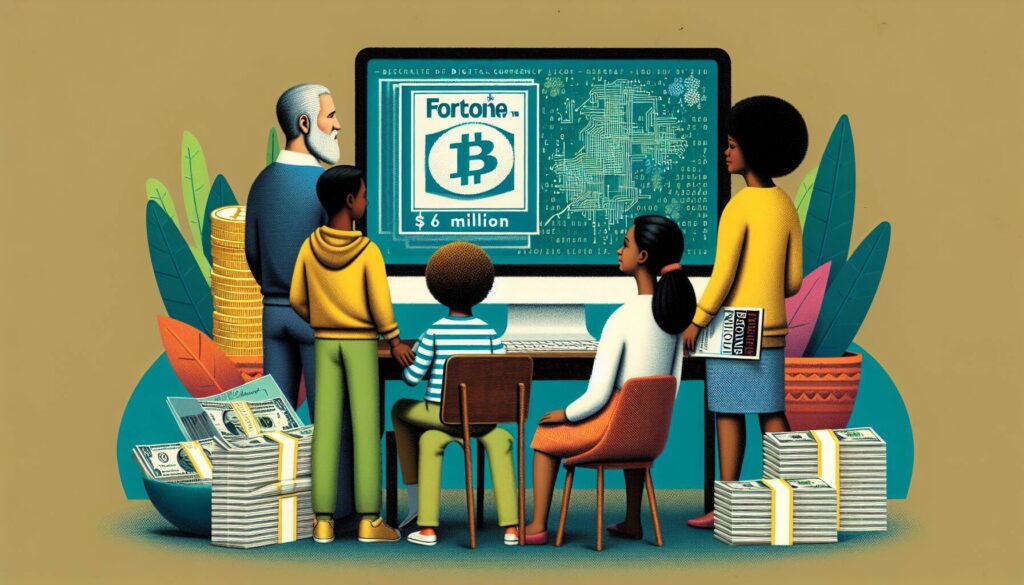El Salvador has emerged as a bold pioneer in the cryptocurrency landscape since President Nayib Bukele made bitcoin (BTC) legal tender in 2021, aligning it with the official currency, the U.S. dollar. This groundbreaking approach has resulted in a bitcoin reserve valued at approximately 0 million and established one of the world’s most advanced cryptocurrency regulatory frameworks. Recently, the nation also garnered attention for its educational initiatives aimed at cultivating a skilled workforce in the crypto sector.
Stacy Herbert, director of El Salvador’s Bitcoin Office, highlighted the success of the country’s Bitcoin-centric education program, which aims to produce skilled Bitcoin engineers to meet the rising demand from major companies such as Tether and Bitfinex. “A lot of students are finding ample opportunity to work at these companies because there’s huge demand for them,” Herbert stated during her interview with CoinDesk. This influx of job opportunities is fostering a vibrant tech culture in San Salvador.
“Bitcoin country needs Bitcoin engineers, right? We’re producing them, and it’s a long manufacturing process, but it’s creating a wonderful positive feedback loop,” Herbert noted.
The educational programs, spearheaded by initiatives like CUBO+, are designed to equip students with vital knowledge about Bitcoin and its underlying technologies. From high school classrooms to intense bootcamps open to university students, these programs are already showing remarkable outcomes. Herbert reported that 100% of the students from the inaugural bootcamp found employment, with some earning close to ,000 a month, significantly above the average starting salary for computer science graduates in the country.
Besides creating job opportunities, the Salvadoran government has broadened its educational outreach, with nearly 80,000 civil servants participating in Bitcoin certification courses. This educational push is not just limited to Bitcoin; it encompasses newer topics like artificial intelligence and robotics, which are scheduled for rollout in schools nationwide, laying the groundwork for a robust economy.
“We’re laying the foundation upon which we can build a great economy,” Herbert emphasized, referring to the importance of shifting mindsets toward sovereignty and independence.
Despite recent changes in the government’s approach to bitcoin payments, including making them voluntary in the private sector as part of a deal with the International Monetary Fund (IMF), Herbert remains optimistic. She believes that these adjustments won’t detract from the overall strategy of advancing the cryptocurrency agenda for the benefit of the Salvadoran people.
Under Bukele’s administration, El Salvador is carving out a new narrative of hope and opportunity that contrasts sharply with its turbulent past characterized by civil strife and social unrest. As Herbert observed, the prospect of a brighter future is not just a distant dream but a burgeoning reality. “I think El Salvador deserves the good times that are coming — that are here,” she asserted.

El Salvador’s Bitcoin Revolution
El Salvador has made significant strides in leveraging Bitcoin as a part of its national strategy, which could impact both the country and its citizens positively. Here are some key points:
- Legal Tender Status for Bitcoin:
- In 2021, Bitcoin was recognized as legal tender in El Salvador, equal to the U.S. dollar.
- This move has established El Salvador as a pioneer in cryptocurrency adoption.
- Bitcoin Reserve:
- El Salvador built a Bitcoin reserve worth approximately 0 million.
- This financial strategy aims to stabilize and grow the economy.
- Advanced Regulatory Framework:
- El Salvador has created one of the most sophisticated regulatory environments for cryptocurrencies globally.
- This aligns with attracting foreign businesses like Tether and Bitfinex.
- Bitcoin-Centric Education Programs:
- A nationwide education initiative has been launched to train future Bitcoin developers, including high school and university-level programs.
- Graduates from these programs have seen increased job prospects, with some earning significantly higher salaries.
- Impact on Employment and Workforce:
- With a new wave of companies relocating, there is strong demand for skilled Bitcoin engineers in El Salvador.
- This creates a positive feedback loop that encourages more students to pursue Bitcoin-related education.
- Shifts in National Priorities:
- The Salvadoran government has adjusted its Bitcoin strategy following agreements with the IMF, making Bitcoin wallet usage voluntary.
- The focus remains on benefiting the people while retaining economic sovereignty.
- Long-term Vision:
- President Bukele’s vision aims for a renaissance in El Salvador akin to economic powerhouses like Singapore.
- This vision relies on building strategic infrastructure, a skilled workforce, and a favorable business environment.
“All of a sudden, the future looks exciting.” – Stacy Herbert
These developments suggest that El Salvador is positioning itself as a leader in the cryptocurrency space, which may inspire other nations to adopt similar strategies. For readers globally, this could imply potential changes in how cryptocurrencies are regulated and utilized, impacting investment opportunities and economic policies in their own countries.
The Bitcoin Renaissance: El Salvador’s Bold Leap Into Crypto Education
El Salvador has taken unprecedented steps in the global cryptocurrency landscape, positioning itself as a pioneering force since President Nayib Bukele adopted bitcoin as legal tender. This strategic move seems to be unlocking a myriad of opportunities, particularly in Bitcoin education, resembling the innovative tech hubs like Singapore and Silicon Valley. However, this ambitious initiative has its share of competitive advantages and pitfalls in the ever-evolving crypto ecosystem.
Competitive Advantages: The eruption of Bitcoin-centric educational programs such as CUBO+ has created a skilled workforce capable of supporting emerging tech companies. Reports indicate that nearly all students who completed the program secured employment, often earning salaries significantly above the national average. This trend attracts international firms seeking expertise, thereby bolstering El Salvador’s economy and reputation as a crypto-friendly jurisdiction. Moreover, the collaboration with Tether and the establishment of advanced regulatory frameworks further enhance the country’s appeal, presenting it as a safe harbor for crypto investments.
Disadvantages: Despite its progressive stance, the recent decision to make bitcoin payments voluntary in the private sector reveals potential vulnerabilities in El Salvador’s aggressive crypto strategy. This concession was part of a larger negotiation with the International Monetary Fund (IMF), which raises questions about the impact on the country’s economic autonomy. Such a shift may send mixed signals to potential investors and crypto-enthusiasts unsure of the country’s long-term commitment to being a global Bitcoin leader.
Furthermore, the rapid transformation of El Salvador’s economy might not immediately benefit all segments of the population. While tech-savvy youths are thriving, there remains a knowledge gap amongst older generations who may not be able to pivot swiftly in this digital age. This could lead to social disparities, essentially sidelining those who lack access to the new educational programs.
For emerging technology companies, this focus on education can create a plethora of hiring opportunities, drawing talent and investments to El Salvador. However, local businesses reliant on traditional economic models may struggle to adapt, leading to a dichotomy between those who embrace the digital frontier and those entrenched in the past.
As the global race to harness the power of cryptocurrency intensifies, El Salvador’s groundbreaking initiatives could serve as a blueprint for other nations. Meanwhile, countries that are hesitant may find themselves lagging, unable to compete in an increasingly tech-oriented world. The current environment poses an exciting yet cautious outlook, heralding potential growth accompanied by the challenges of transformation.
















